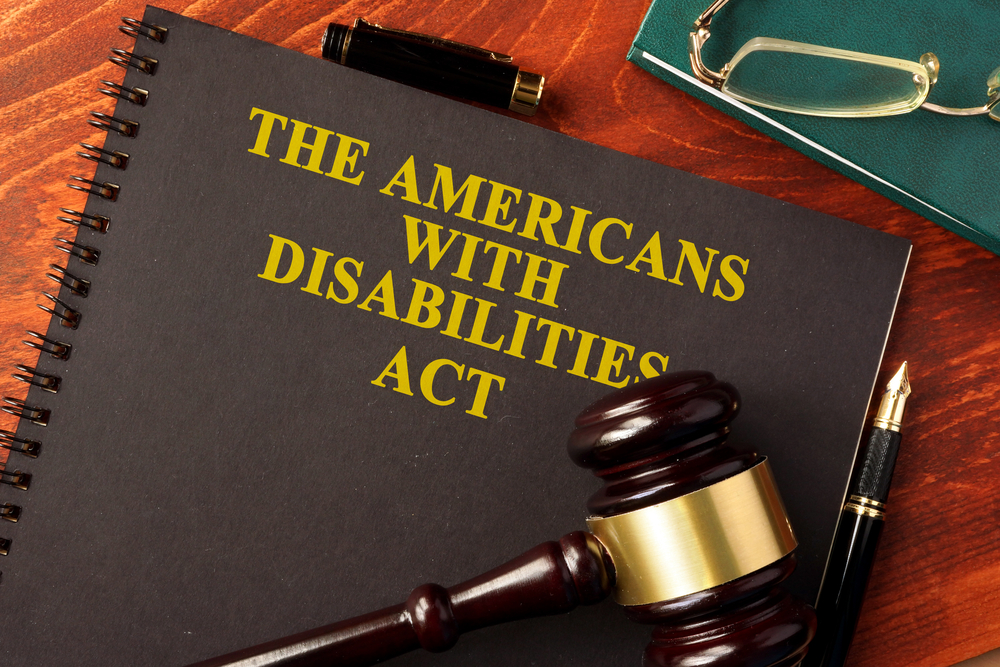Heartfelt Cheers and Honest Reflections: Happy 30th Birthday, ADA!
Written by |

Many of my friends with disabilities have been posting about the 30th birthday of a well-known gem, the Americans with Disabilities Act (ADA), which was signed into law on July 26, 1990.
This milestone has generated a furnace of emotion, prompting all manner of incredible perspectives. I’ve read posts in honor of those with disabilities who have come before us, amplifying their voices as catalysts for change. I’ve read sincere stories that involve a mixture of gratitude for what is, and frustration about why it’s taking so long to achieve what can be.
I’ve read personal accounts of continued daily oppression of people with disabilities relating to marriage inequality, income inequality, lack of accessibility, and rampant ableism. I’ve read about ideas — some bold, some very simple — that could lead to enhanced quality of life for all.
That’s the beauty of disability advocacy: We all have unique stories to share, and we don’t always see things the same way.
I’ve been combing through memories, exploring how the ADA has connected lines within the blueprint drawings of my life with a disability. I’ve entered some beautifully hospitable rooms, and I’ve surveyed others in dire need of extensive renovation.
Allow me to share a story with you. After graduating college, I had a stellar interview for a job at a local hospital. Unable to hide my SMA, I addressed some accommodations I’d need. No use in trying to avoid the obvious questions, right?
In my youth, I struggled with feeling inadequate because of my wheelchair, but I had grown comfortable talking about it. I wanted others to perceive me as approachable. My dad always told me I have “people smarts”; it’s true that connecting with others is a strength of mine, even though I consider myself an introverted hermit at times. I genuinely enjoy listening to other people’s stories.
I got the job. After a celebratory moment passed, I wondered how the intricacies would sync together. I was unsure if I had enough pooled resources to rise above the barriers before me, which included caregiving needs and transportation.
I was dating my partner, Andy, who was a newly integral part of my care team. But he deserved to have enough time to dedicate toward his own goals and identity separate from mine. It was important that I give him breathing room, keeping the weight on his shoulders in check. I didn’t want my precious support system to be run ragged.
As an adult, I had become guarded because of my childhood experiences. My dad worked tirelessly for our family. On the road for days at a time, he built a business of painting and maintaining water towers across the Midwest. He was always there when it counted.
Because of how hard he worked, our family completely fell through the cracks of “the system.” We didn’t qualify for assistance in regard to my disability — zero help was available for home modifications or respite care resources for my mom, and we couldn’t easily afford such costly things.
When I was in high school, my parents divorced, and my mom moved into a different house that was retrofitted with several amazing ADA features for me. But what did it matter? My family had been torn apart at the seams before we received any type of supportive services.
When it was time for that first professional job, I tried to leave Andy out of it as much as I could, but it was nearly impossible. I took medical transportation to and from work each day, which was costly in dollars and frivolous of time. I didn’t have a caregiver with me and couldn’t catheterize myself like I needed to.
I tried a urostomy bag, but it was faulty at times, rendering my career garb soaked in golden leakage by day’s end. I was sure it was only a matter of time before Andy would clean up my mess once more, then throw in the towel completely, and everything would fall apart like it always had when I was a kid. But no, he’d look me in the eyes and say, “You’re human, I’m human. We’ll get through this together. It’s just pee.”
The simmering situation reached a boiling point. I requested to work remotely, but received an icy response from administration to the effect of, “If we allow you to work from home, everyone will be lining up saying they have a disability.”
Many of us have stories like this, and it’s healthy to acknowledge the painful emotions involved. Make no mistake, I’m grateful for the myriad ways in which the ADA has positively shaped my life. But the fine print still allows ignorance to permeate beneath the cracks, rattling us to our core. Honest reflection helps to bridge the gaps and build a stronger foundation for all.
***
Note: SMA News Today is strictly a news and information website about the disease. It does not provide medical advice, diagnosis, or treatment. This content is not intended to be a substitute for professional medical advice, diagnosis, or treatment. Always seek the advice of your physician or other qualified health provider with any questions you may have regarding a medical condition. Never disregard professional medical advice or delay in seeking it because of something you have read on this website. The opinions expressed in this column are not those of SMA News Today, or its parent company, Bionews Services, and are intended to spark discussion about issues pertaining to spinal muscular atrophy.







Leave a comment
Fill in the required fields to post. Your email address will not be published.